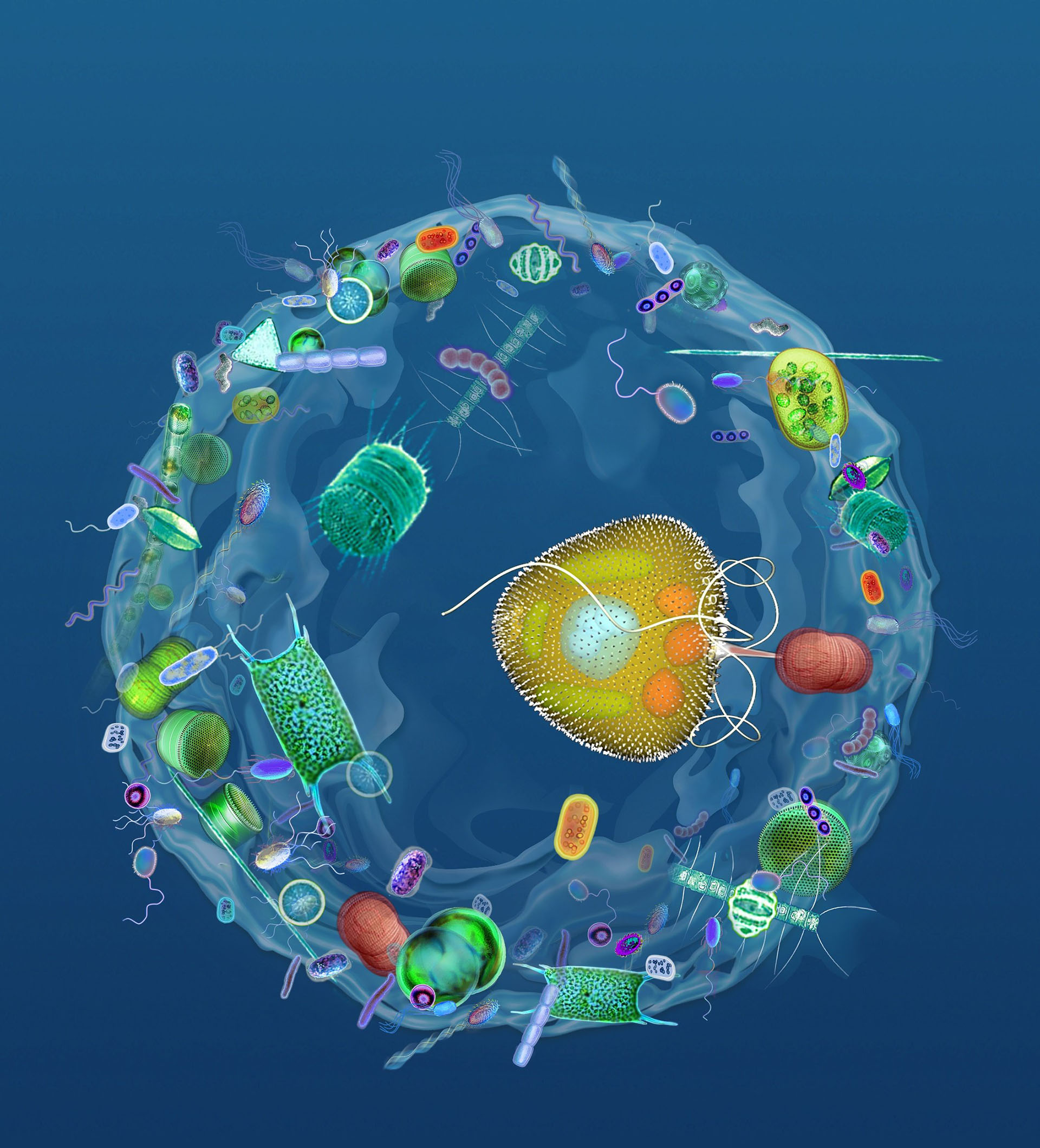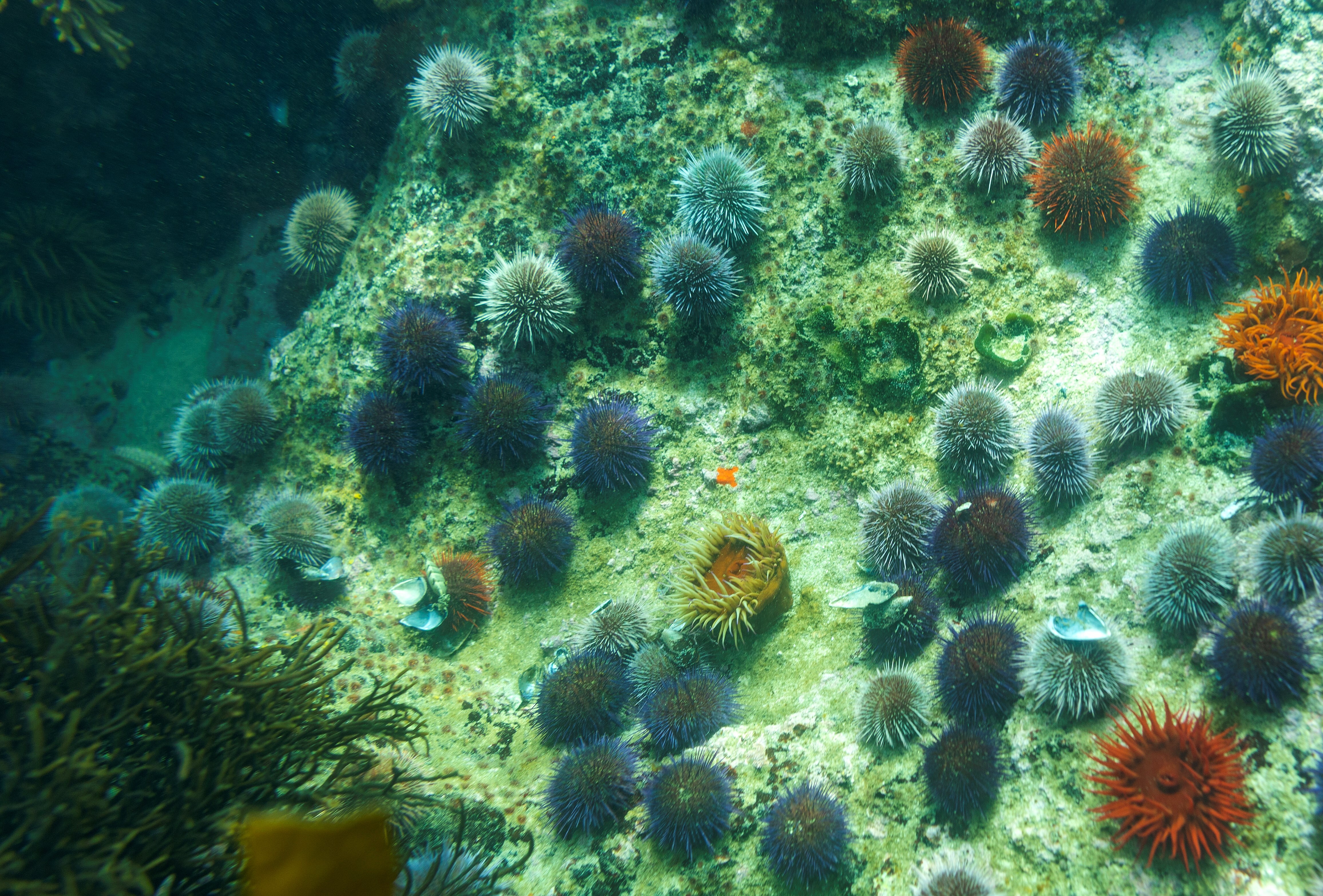
Scientists from Sydney University of Technology (UTS), Australia, have discovered a new species of microbe that has the potential to capture carbon naturally, even as the oceans warm and become more acidic.
The Prorocentrum cf. balticum, is not a bacterium but a member of a relatively little known branch of the tree of life: the protists. Protists are eukaryotes, meaning they have a distinct nucleus and organelles within their cells, but they don't fit into the kingdoms of animals, plants, or fungi.
These creatures, mostly single-celled, are quite common in the ocean, but scientists still have a long way to know what their functions are in the marine environment. Prorocentrum cf. balticum is a mixotrophic, which means that it can do photosynthesis like a plant and also consume other organisms such as an animal.
Marine biologist Michaela Larsson was in charge of the research published in the journal Nature Communications. As he explained, this is the “first study to demonstrate this behavior”.
Marine microbes govern ocean biogeochemistry through a variety of processes including vertical export and carbon capture, which ultimately modulates the global climate.
Larsson said that “while phytoplankton's contribution to the carbon bomb is well established, the functions of other microbes are much less understood and rarely quantified.” Scientists reported in their paper that “this is especially true for mixotrophic protists, who can perform photosynthesis and consume other organisms simultaneously”.

Most terrestrial plants use the nutrients in the soil to grow, but some, such as the Venus flytrap, get extra nutrients by trapping and consuming insects. “Similarly, marine microbes that perform photosynthesis, known as phytoplankton, use nutrients dissolved in the surrounding seawater to grow,” Larsson explained. However, the organism we observed in the study, Prorocentrum cf. balticum, is a mixotrophic, so you can also eat other microbes to get a concentrated hit of nutrients, something like taking a multivitamin. Having the ability to acquire nutrients in different ways, this microbe can occupy parts of the ocean without dissolved nutrients and, therefore, unsuitable for most phytoplankton.”
Professor Martina Doblin, lead author of the study, noted that “the findings have a global significance about how we see the ocean balances carbon dioxide in the atmosphere.”
The researchers estimated that this species, isolated from the waters off the coast of Sydney, has the potential to sink between 0.02 and 0.15 gigatonnes of carbon per year. A 2019 report by the National Academies of Science, Engineering and Medicine found that to meet climate goals, CO2 removal technologies and strategies will need to remove approximately 10 gigatons of CO2 from the atmosphere each year until 2050.

“This is a completely new species, never described in such detail before,” said Doblin. It follows that, potentially, more carbon is sinking into the ocean than we currently think, and that there is perhaps greater potential for the ocean to capture more carbon naturally through this process in places that were not thought to be potential carbon sequestration locations.”
Experts are now wondering whether this process could be part of a nature-based solution to improve carbon capture in the ocean. “The natural production of carbon-rich extracellular polymers by ocean microbes under nutrient-deficient conditions that we will see under global warming is a situation that suggests that these could help keep the biological carbon bomb at bay in the future ocean,” they conclude in their paper.
The next step before evaluating the viability of large-scale culture is to measure the proportion of carbon-rich exopolymers resistant to bacterial degradation and determine the rate of subsidence of discarded mucospheres.
“This could be a game changer in the way we think about carbon and the way it moves in the marine environment,” Doblin enthused.
KEEP READING:
Últimas Noticias
Debanhi Escobar: they secured the motel where she was found lifeless in a cistern
Members of the Specialized Prosecutor's Office in Nuevo León secured the Nueva Castilla Motel as part of the investigations into the case

The oldest person in the world died at the age of 119
Kane Tanaka lived in Japan. She was born six months earlier than George Orwell, the same year that the Wright brothers first flew, and Marie Curie became the first woman to win a Nobel Prize

Macabre find in CDMX: they left a body bagged and tied in a taxi
The body was left in the back seats of the car. It was covered with black bags and tied with industrial tape
The eagles of America will face Manchester City in a duel of legends. Here are the details
The top Mexican football champion will play a match with Pep Guardiola's squad in the Lone Star Cup

Why is it good to bring dogs out to know the world when they are puppies
A so-called protection against the spread of diseases threatens the integral development of dogs



